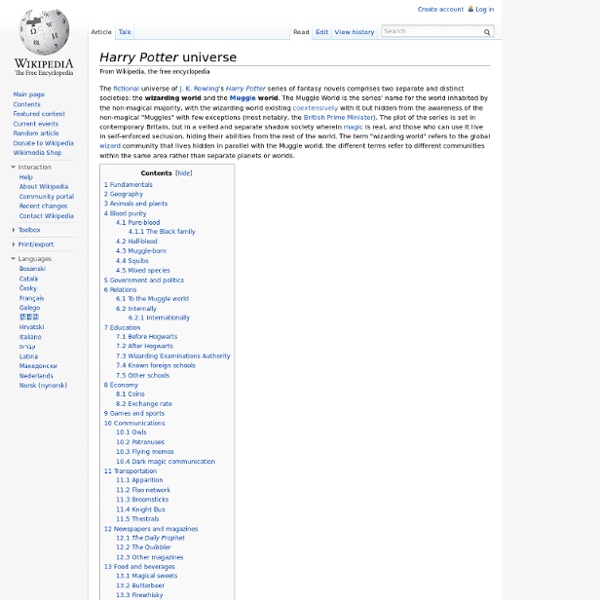Harry Potter universe

7 Feminist Take-Aways From the Final Harry Potter Movie
The Harry Potter films, after seven installments, come to a fulfilling close with the release of Harry Potter and the Deathly Hallows: Part 2. But the final movie has a special bonus: a number of feminist take-aways. Echoing the seven Horcruxes holding pieces of Voldemort’s soul, I found seven feminist lessons in Deathly Hallows: Part 2. 1. Patriarchy is evil. And it can be destroyed Voldemort is the face of patriarchal evil, and the final film depicts him repeatedly as an oppressive father-figure. 2. Sure, Harry’s quest is largely a personal one, set in motion by Voldemort’s personal vendetta against him, but it quickly becomes apparent that the stakes of this battle include not just Harry but the entire wizarding (and Muggle) world. And when Harry, with Ron and Hermione watching, finally chooses to destroy rather than keep the Elder Wand, the world’s most powerful wand, he denounces oppressive power. 3. The message is clear. 4. 5. 6. 7.
J. K. Rowling
Born in Yate, Gloucestershire, Rowling was working as a researcher and bilingual secretary for Amnesty International when she conceived the idea for the Harry Potter series on a delayed train from Manchester to London in 1990.[11] The seven-year period that followed entailed the death of her mother, divorce from her first husband and poverty until Rowling finished the first novel in the series, Harry Potter and the Philosopher's Stone (1997). Rowling subsequently published 6 sequels—the last, Harry Potter and the Deathly Hallows (2007)—as well as 3 supplements to the series. Since, Rowling has parted with her agency and resumed writing for adult readership, releasing the tragicomedy The Casual Vacancy (2012) and—using the pseudonym Robert Galbraith—the crime fiction novel The Cuckoo's Calling (2013), the first of a series. Name Although she writes under the pen name "J. Biography Birth and family Childhood and education Inspiration and mother's death Marriage, divorce and single parenthood
Related:
Related:



